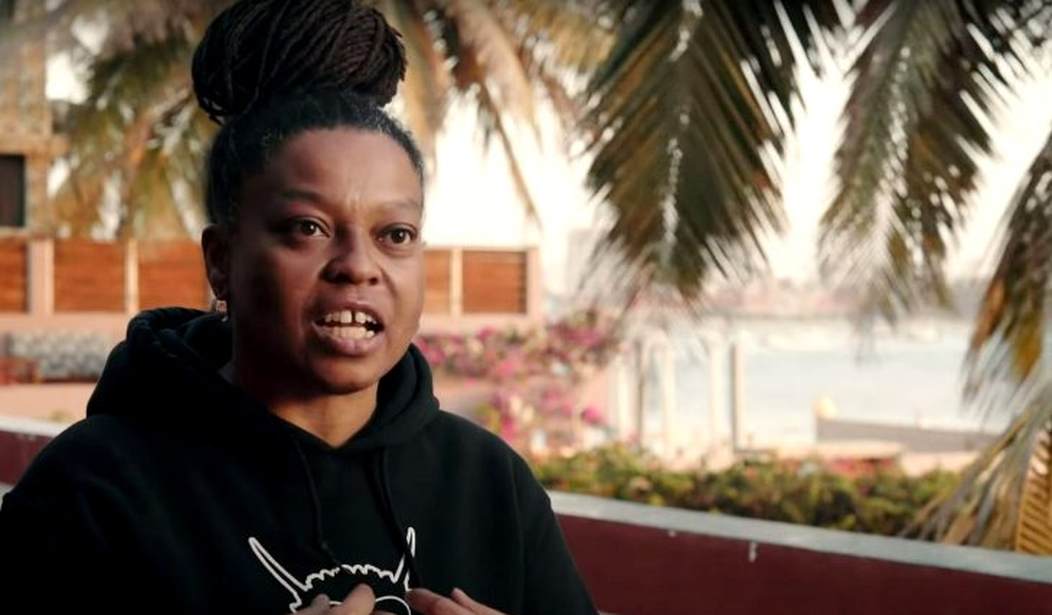Since my move to Orange County, I’m a beach girl now. Never thought I would be, but there is something centering and serene about being near the Pacific Ocean. I can still do without the sand, but I am learning to enjoy the healing power of the water.
There is much in American history that surrounds Blacks and beaches. Before this month ends I will do some exploration about the Bruce’s Beach controversy and the mess still unraveling from this 80-year-old land grab. Having been born and raised in Chicago, I was more than cognizant of the segregation that existed on some beaches, which is part of the reason I rarely frequented them growing up. Much like gun control policies, Blacks have had their access blocked from certain forms of recreation due to cost and access. Earl Woods provided access to his young son, and what resulted is the legendary Tiger Woods, who has made a once “whites only” sport accessible to future generations of all races.
Master Chief Petty Officer Carl Brashear busted stereotypes on what a Navy diver should look like, and then what a disabled Navy diver could accomplish. Arthur Ashe did the same with tennis, and paved the way for Richard Williams to coach his daughters Serena and Venus to Wimbledon success. These young women have also created greater access for future generations of all races.
Now, an organization called Black Girls Surf is doing the same with competitive surfing, as well as building health and confidence in young girls of color.
They are the feature of this week’s Feel Good Friday.
Black Girls Surf is a training camp redefining surfing in Senegal.
They have faced a lot of resistance from their families and a male dominated surfing industry. But the girls aren’t willing to give up their dreams of going pro. pic.twitter.com/6uB36Rg0RV
— Unreported World (@UnreportedWorld) November 19, 2021
The sight of Black girls isn’t common in surf competitions, popular surf media or even casual lineups. For example, among the top 20 female surfers in the World Surf League’s 2019 rankings, there’s only a few women without blond hair, and few women of color.
Rhonda Harper, who learned to surf while a teenager on O‘ahu, founded the international cohort of surf camps called Black Girls Surf. If you look at the list of participants for typical surf contests, she says, “the one key person missing for any Black girl that’s watching is a Black girl.”
“If you can’t see it, you can’t be it.”
Rhonda Harper, founder of Black Girls Surf and Inkwell Surf and Skate Club, joins us today on this month's episode. Hear her story as she set out to bring black representation within the surfing industry. Listen now: https://t.co/9kvoDYMHYb pic.twitter.com/yGRhoH2lQH
— Good Tidings Foundation (@goodtidingsSF) November 2, 2021
Harper has had a fascinating life, that she eloquently expounds upon on the above Good Tidings Foundation podcast. The recording is less than 30 minutes, and I strongly recommend giving it a listen.
The last several years has presented activism, especially Black activism, as a bastion for Woke ideology and race grifters. This could not be further from the truth. I consider myself an activist, but I use tools other than protesting or making other people feel bad about their race. Rhonda Harper embodies this same type of activism by embodying the proverb, “Each one, teach one.” Harper uses her experience and knowledge to open up a new world of surfing to Black girls, and to expand the worlds of Black girls who already surf and train them for competition.
What obstacles prevent Black girls from entering the surf world? Harper boils it down to a lack of two things: “access and role models.”
The four Black women involved with surfing who I spoke with all cited the same two challenges. Bailey says that because there are not already large numbers of Black surfers, surfing is “not something that really pops in our mind to go and try and do.”
This was from an article published in 2020, and in two years, Black Girls Surf has exploded. When Harper started Black Girls Surf in 2014, she looked to surf camps in West Africa for students, and discovered future professional surfer Khadjou Sambe. From there, Harper launched surf camps in many locations nationally and internationally: Los Angeles, San Francisco, North Carolina, Jamaica, Nigeria, Liberia, Ghana, Sierra Leone, Senegal and Ivory Coast.
Sambe and Harper are featured in this beautiful documentary, How Women in Surfing are Changing the World. It’s less than 15 minutes, and gives a window into not just the importance of representation, but the importance of being the access point that opens up doors of opportunity that someone might not otherwise have had, or that expands someone else’s worldview.














Join the conversation as a VIP Member